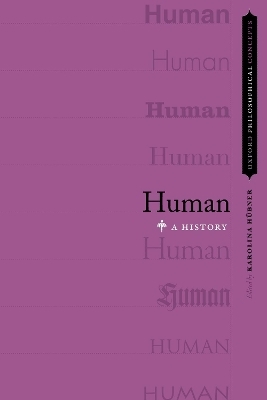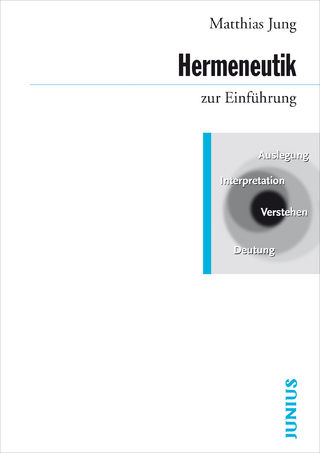
Human
Oxford University Press Inc (Verlag)
978-0-19-087638-8 (ISBN)
A paradox of the concept of "human nature" is that it holds both the promise of universal equality--insofar as it takes us all to share a common nature--while all too often rationalizing exploitation, oppression, and even violence against other individuals and other species. Most appallingly, differences in skin color and other physiological traits have been viewed as signs of a "lesser" humanity, or of outright inhumanity, and used to justify great harms. The volume asks: is the concept of human nature separable from the racist, sexist, and speciest abuse that has been made of it? And is it even possible--or desirable--to articulate a notion of human nature unaffected by race or gender or class, as if it were possible to observe humanity in a pure form?
This volume traces the history of the concept "human" by examining the history of claims about distinctively human properties and capacities, and the ethical and political repercussions of such accounts. Spanning the history of philosophy, political science, religion, medical ethics, the history of art and science fiction, it illuminates how our self-understanding as "human" evolved across time and place--from ancient Greek, classical Chinese, and medieval Arabic accounts of human nature to contemporary evolutionary theory and the transhumanist movement. It examines problems ranging from the intelligibility of Incarnation (a relationship between divine and human beings) to problems posed by genetic engineering and artificial intelligence. Short pieces, or Reflections, are interspersed among the chapters, which take up topics ranging from Frankenstein to Marx's concept of human nature.
Karolina Hübner is Associate Professor of Philosophy at Cornell University. Her primary area of research is early modern metaphysics and philosophy of mind. She is co-editor with Justin Steinberg of the Cambridge Spinoza Lexicon (forthcoming, 2022).
Contributors
Series Editor's Foreword
Introduction. Karolina Hübner
Chapter 1. Plato and the Pleonectic Conception Of Human Nature. Rachana Kamtekar
Chapter 2. Aristotle's Human Beings. Marguerite Deslauriers & Edwin Filotas
Reflection: Race and The Human. Charles W. Mills
Chapter 3. The Status of The Human in Classical Chinese Philosophy. Franklin Perkins
Chapter 4. The Nature of Human and Non-Human Animals in Classical Islamic Philosophy: Alfarabi And Avicenna. Luis Xavier López-Farjeat
Reflection: The Trinity and the Human. Richard Cross
Chapter 5. Renaissance Conceptions of Human Being. Amos Edelheit
Chapter 6. Margaret Cavendish on Human Beings. Marcy Lascano And Eric Schliesser
Chapter 7. Spinoza on the Good Life for Humans. Ursula Renz
Chapter 8. Hobbes and Rousseau on Human Nature and the State Of Nature. Ioannis Evrigenis
Reflection: Is Frankenstein's Creature a Human with Rights? Conceptualizing the Rights of the Child After Genetic Engineering. Eileen Hunt Botting
Chapter 9. The Concept of Humanity in Kant's Transcendental Philosophy. Clinton Tolley
Reflection: Marx On Human Nature. Spencer J. Pack
Chapter 10. Heidegger on Human Being: The Living Thing Having Logos. Katherine Withy
Reflection: The Compulsion of The Human. Ray Brassier
Chapter 11. Being Human, Being Homo Sapiens. D.M. Walsh
Reflection: The Anthropomorphic Sixties and The Human. Christa Noel Robbins
Chapter 12. The Metaphysics of Transhumanism. Eric T. Olson
| Erscheinungsdatum | 07.02.2022 |
|---|---|
| Reihe/Serie | Oxford Philosophical Concepts |
| Verlagsort | New York |
| Sprache | englisch |
| Maße | 216 x 142 mm |
| Gewicht | 531 g |
| Themenwelt | Geisteswissenschaften ► Philosophie ► Allgemeines / Lexika |
| Geisteswissenschaften ► Philosophie ► Geschichte der Philosophie | |
| Geisteswissenschaften ► Philosophie ► Philosophie der Neuzeit | |
| Geisteswissenschaften ► Religion / Theologie | |
| ISBN-10 | 0-19-087638-7 / 0190876387 |
| ISBN-13 | 978-0-19-087638-8 / 9780190876388 |
| Zustand | Neuware |
| Informationen gemäß Produktsicherheitsverordnung (GPSR) | |
| Haben Sie eine Frage zum Produkt? |
aus dem Bereich


